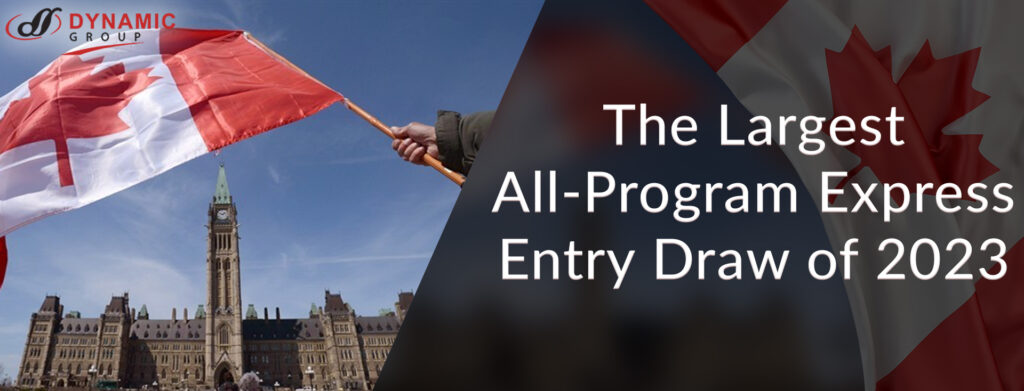It has been disclosed how the revised National Occupation Classification (NOC) system will impact Express Entry eligibility.
NOC 2021 will be implemented in November of 2022. According to an internal briefing document, sixteen occupations will become eligible for Express Entry, while three will become ineligible.
Currently, Immigration, Refugees and Citizenship Canada (IRCC) utilises NOC 2016 to establish eligibility of professions for its temporary and permanent immigration programs. However, by Canadian law, IRCC must transition to NOC 2021 beginning in November.
Employment and Social Development Canada (ESDC) and Statistics Canada oversee the NOC and update the system every ten years. NOC 2021 will provide a new framework and a revamped categorization structure, which will have an impact on IRCC programs.
As a result of these modifications, Express Entry will now accept the following 16 occupations:
Payroll administrators; Dental assistants and assistants in the dental laboratory
Patient service employees, orderlies, and nursing assistants; pharmacy technical assistants and pharmacy assistants.
- Assistants to elementary and secondary school teachers
- Correctional service officers
- sheriffs and bailiffs
- Enforcement of ordinances and other regulatory officials
- Estheticians, electrologists, and similar occupations
- Residential and commercial installation and maintenance specialists
- Insecticides and fumigants; Other repairmen and servicemen
- Transport truck drivers
- Bus drivers, subway operators, and other transit operators
- Heavy equipment operators
- Aircraft assemblers and inspectors of aircraft assembly
In addition, the following three jobs will become ineligible:
- Other performers,
- Program directors and fitness instructors,
- As well as tailors, dressmakers, furriers, and milliners.
These three occupations will continue to qualify for programs with broader occupational eligibility requirements, such as certain streams of the Provincial Nominee Program.
The present four-category “skill level” structure has been revamped and replaced with a new six-category system as the most significant alteration to NOC 2021. The new system specifies the required level of Training, Education, Experience, and Responsibilities (TEER) for each occupation.
Prior NOCs featured four skill levels. NOC A represented jobs that often require a university degree, NOC B comprised skilled trade’s jobs or jobs requiring a college education, NOC C covered professions requiring intermediate skills or job-specific training, and NOC D was for labour jobs requiring on-the-job training.
In September 2020, the IRCC’s Executive Committee decided that the revised TEER will adopt the following structure:
NOC 2016 NOC 2021
Skill Type 0 TEER 0
Skill Type A TEER 1
Skill Type B TEER 2
Skill Type B TEER 3
Skill Type C TEER 4
Skill Type D TEER 5
To classify occupations, NOC 2021 will employ a five-tiered hierarchical approach. In addition, occupations will now be coded using a five-digit system as opposed to the current four-digit system. There are six categories in the TEER system: 0, 1, 2, 3, 4, and 5.
| TEER 0 | Management Occupations |
| TEER 1 | Completion of a bachelor’s, master’s, or doctoral degree from an accredited college or institution; or Numerous years of expertise in a particular profession from TEER category 2 (when applicable). |
| TEER 2 | Completion of a two- to three-year post-secondary education program at a community college, institute of technology, or CÉGEP; or Completion of a two- to five-year apprenticeship program; or Occupations with supervisory or significant safety responsibilities (police officers and firefighters); or Several years of experience in a specific occupation from TEER category 3 (when applicable). |
| TEER 3 | Completion of a post-secondary education program of less than two years at a community college, institute of technology, or CÉGEP; or Apprenticeship training of less than two years; or More than six months of on-the-job training, training courses, or specific work experience with some secondary school education; or Several years of experience in a particular occupation from TEER category 4; or (when applicable). |
| TEER 4 | Secondary school diploma; or several weeks of on-the-job training with some secondary school education; or several years of experience in a specific occupation from TEER category 5 (when applicable). |
| TEER 5 | Short job experience and no formal schooling prerequisites. |
Statistics Canada states that the skill type model is being replaced by the TEER system for two primary reasons. First, the TEER system seeks to clarify the requisite degree of education and work experience for a certain occupation. Second, the skill type paradigm establishes false distinctions between professions requiring low and high levels of competence. The purpose of TEER implementation is to provide stakeholders with a better understanding of the skills required for each occupation.
This tool from Statistics Canada allows you to compare your current NOC to NOC 2021.
If you would like to speak to our consultant about relocation, please click here





